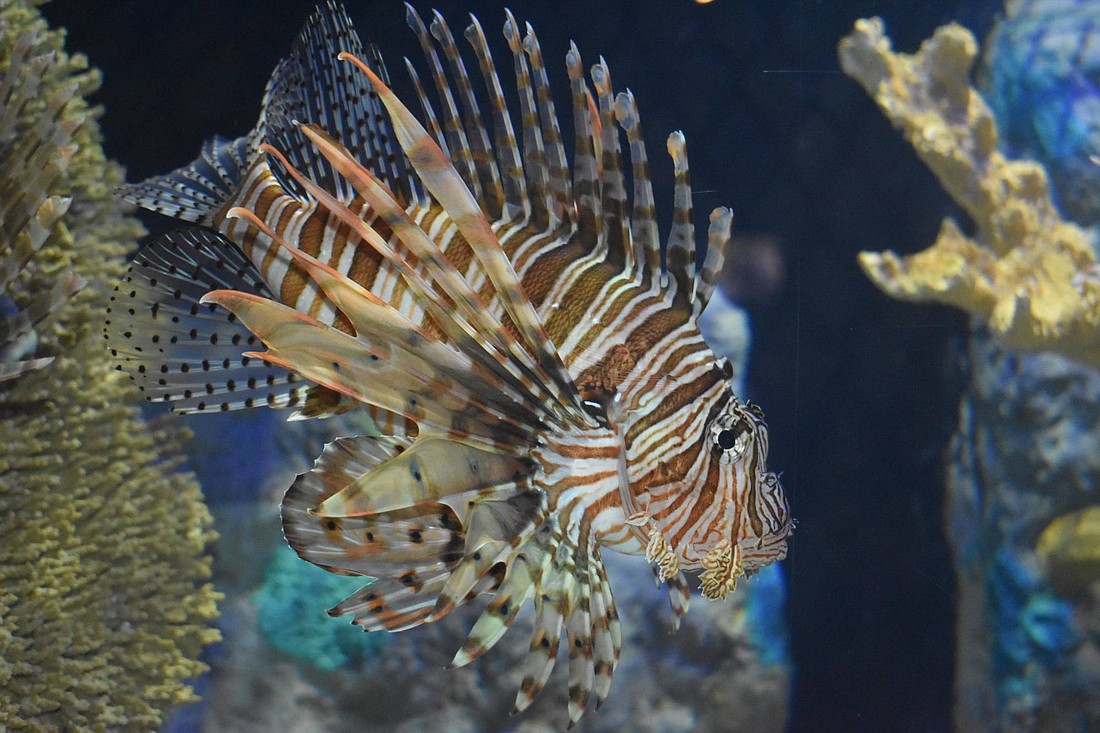- June 4, 2025
-
-
Loading

Loading

So the idea is to catch a bunch of fish and then use them for food and science.
That’s how you sum up the upcoming Lionfish Derby, hosted by Mote Marine Lab and Aquarium and the REEF Invasive Lionfish Program and scheduled to start on Friday, July 12 and end on Sunday, July 14. It is the sixth annual derby of its kind here in Sarasota and aims to rid the area of as many lionfish as possible.
What do REEF and Mote, the organizations driving the derby, have against lionfish, you ask?
A lot. And you should, too. They’re actually an invasive species from Australia’s Great Barrier Reef, likely brought over here in the exotic fish trade, said Kayla Keyes, part of the education department at Mote. They have no native predators in the Atlantic and Gulf waters, as their venom makes them deadly to everything that could keep the population in check. But they stay predators of other fish.
“They can demolish a reef population,” said Keyes.
Teams of two to four divers, who can still register for $120 per team, will head out on Saturday, July 13 and spear as many as they can using short spear poles. Since they’re usually found in deep waters, scuba divers will be doing most of the hunting, said REEF invasive species program manager Alli Candelmo.
Outside of derbies, lionfish can be difficult to catch since they’re in those deep waters, and catching and selling them can be more trouble than it’s worth, Candelmo said. There are also fewer fish than there once were in Florida, which means the derbies do have a sizeable impact.
“That’s sort of the idea of the derbies, to get a lot of fish off the reefs in one day and then inspire people to go out and keep catching,” said Candelmo. “We’re definitely seeing lower populations in recreational sites where people are diving for them regularly, and both [through] derbies and longer-term removal.”
The weekend will end with a tasting event sponsored by Mote at the Wave Center on July 14. Chefs Mike Yoder and Victor Gaviria from Modern Events, John Mancini from the Deep Sea Diner at Mote, Jamil Pineda from Michael's on East, Alex Vasquez from Mattison's and Steve Phelps from Indigenous will be serving up a variety of lionfish samples, said Mote's public relations manager Stephannie Kettle. The fish that participants eat won’t be what was caught over the weekend, though.
“We’ll filet fish on site for ceviche, [but] the fish that will be for Mote is already being processed,” Candelmo said. “There would be no way to get 100 pounds of fresh fish ready for that event.”
Also on Sunday, educators will be dissecting lionfish for demonstrations, and captains can sell some of what they’ve caught.
Unfortunately for this weekend, a storm might roll in and complicate the hunt. No worries for fish tasters, though, as that event will go on regardless. If the derby does go on, expect around 500 lionfish from Sarasota waters to be caught, though that number could vary greatly, Candelmo said.